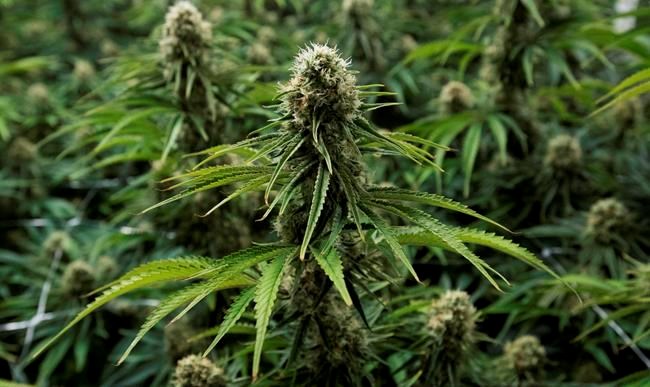Central Saanich police officers will be barred from using cannabis in the 24 hours before they report for duty under a new policy approved by the district’s police board.
Chief Les Sylven said the policy was adopted Thursday night in preparation for recreational cannabis use becoming legal on Wednesday.
“On the one side, police officers are Canadian citizens like anyone else and have freedoms and rights like anyone else when they’re not policing,” he said in an interview.
“On the other side, though, they have a very high-risk, dangerous occupation that they do. So trying to strike the right balance between those two polarities is what we’ve been doing for the last several months.”
Central Saanich is the first of four municipal police departments on the South Island to unveil a cannabis policy for its employees. The Victoria, Saanich and Oak Bay departments all said Friday that they are still working on theirs.
Sylven said the Central Saanich document stipulates that police officers must arrive at work fit for duty.
“That’s no change to the way it’s always been before cannabis,” he said. “A police officer can never report for duty under the influence of alcohol or any kind of drug. That’s foundational.”
The department, however, felt it necessary to add a 24-hour abstinence period for cannabis because its active ingredient — THC — remains in a person’s system for an extended period.
As time goes on and there’s more research, the policy might be adjusted, he said.
Sylven said there will be no random drug testing of officers, but they will be tested if there is a reasonable suspicion that they have violated the 24-hour ban or arrived at work unfit for duty.
“Our officers are trained to detect this in other people, so that’s also something that we will be relying on, and the professionalism of police officers,” he said, noting the Police Act requires officers to report misconduct.
The Victoria department plans to release a policy “in the coming days,” while Saanich offered no timeline for amending its policy on the use of intoxicants.
Oak Bay Police Chief Andy Brinton said in an email that his department expects to finalize a policy by the end of November.
“In the meantime, we will depend on the current understanding by our staff of the fit-for-duty concept as it already exists for alcohol and other legal substances,” he said.
Across the country, police policies on cannabis use vary widely from one department to the next.
Toronto police announced this week that it will require officers to abstain from using recreational marijuana in the 28 days prior to reporting for duty. The RCMP is reportedly considering a similar policy, while the Calgary Police Service has banned cannabis use by sworn members whether on or off duty.
Ottawa and Vancouver police, by contrast, have opted to place no restrictions on officers as long as they are fit for duty when they arrive at work.
The Canadian Police Association, which represents police officers, argues that the more stringent policies amount to an “outright prohibition” on cannabis use. Tom Stamatakis, association president, has questioned why some forces are treating cannabis differently from other legal products — such as alcohol and prescription drugs — that can cause impairment.
“Effectively, what they’re saying is: We don’t trust police officers to make the right decision when it comes to reporting for work fit for duty,” he said in an interview with the Canadian Press. “And I just find that to be an offensive approach.”
Sgt. Paul Brailey, president of the Central Saanich Police Association, said the union believes the Central Saanich policy strikes the right balance between protecting officers’ rights and ensuring their safety and that of the public.
“I know Vancouver struck a ‘fit-for-duty’ description and I know others like the RCMP are looking at 28 days,” he said. “But I think with what we know about marijuana and the effects and the longevity within the system, I think 24 hours was a fair compromise in the end.”
— With a file from The Canadian Press



